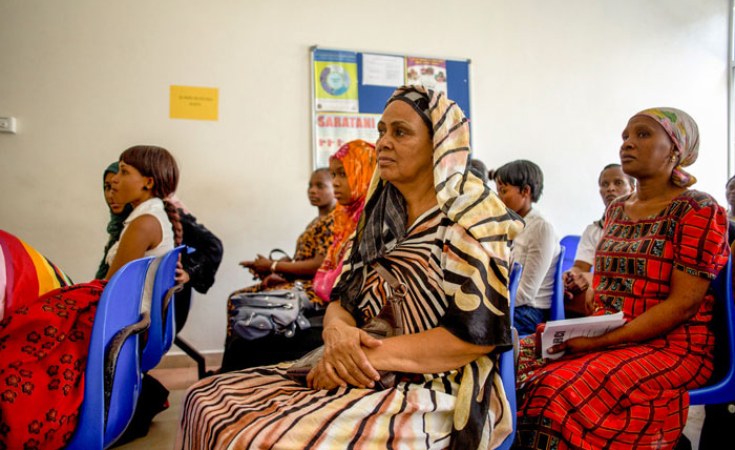DAR ES SALAAM: ZANZIBAR President Dr Hussein Mwinyi has called for the abolition of gender-discriminatory laws, policies and norms that have been holding women and girls back.
During the opening of the High-Level Regional Meeting on Financing for Gender Equality in Dar es Salaam on Wednesday, Dr Mwinyi stated that African countries need to embrace policies that economically empower women, including promoting gender equality in the finance sector.
"We must also work towards providing women with access to and use of productive resources, including affordable capital, financial services, and digital products, and promote financial inclusion for women through innovative approaches," said Dr Mwinyi.
To achieve this, he argued that the country must intensify interventions that promote cultural transformation to change discriminatory social norms and support platforms representing women's groups.
Dr Mwinyi directed the ministries in charge of finance and gender to create enabling policies and legislation that support women in the creation of decent jobs to attain economic justice.
"Ministers, as policymakers, you also need to create enabling policies and legislation that support women and young women in the creation of decent jobs both in the formal and informal sectors to attain economic justice," he said.
He emphasised that the objective should not only be the creation of jobs, but also the implementation of legislation that targets the elimination of gender discrimination in the workplace, including hiring, promotion, pay, training and access to decision-making positions.
Speaking about Tanzania's achievements in increasing women's access to financial services, he noted that the gender gap in financial inclusion has reduced from 10 per cent in 2017 to 4 per cent currently. Additionally, there has been an increase in the percentage of women using banking services, from 66 per cent in 2017 to 80 per cent this year.
"These achievements in women's financial inclusion are the result of the increase in the provision of National Identification Numbers (NINs) to women," he explained, adding: "The future of Africa holds immense potential that cannot be realised if women and girls are left behind."
President Mwinyi also urged participants to use the platform to reinforce national development plans and collective global ambitions to enhance the economic rights of women across the continent.
Tanzania, in collaboration with UN Women and the International Monetary Fund (IMF) AFRITAC East, convened the meeting, which brought together Ministers of Finance and Gender from 22 countries across Sub-Saharan Africa.
The gathering highlights Tanzania's leadership in the Generation Equality initiative, which aims to accelerate investments and implementation for gender equality worldwide.
Ministers from 22 countries participated in the event, along with technical specialists from the respective ministries.
Other countries represented include Burundi, Ethiopia, Ivory Coast, Malawi, Namibia, Rwanda, Sierra Leone, Somalia, Madagascar, Senegal, Eritrea, South Africa, South Sudan, Uganda, Zambia, the Democratic Republic of the Congo, Chad, Kenya, Liberia, Nigeria, and Zimbabwe.
Earlier, the Minister for Finance, Dr Mwigulu Nchemba, noted that Tanzania is doing its best to streamline gender equality and commended UN Women and the International Monetary Fund (IMF) for their support.
Dr Nchemba stated that Tanzania has made significant progress in improving gender equality by implementing the best policies possible, including robust institutional frameworks and budgeting processes.
He reaffirmed the government's commitment to enhancing gender-responsive budgeting in Tanzania.
"This is a testament to our shared dedication to advancing the cause of gender equality across the region. Empowering women is not only the right choice but critical to economic growth and prosperity."
"Although we haven't yet met our goals, ensuring gender equality is still a top priority for us," he added.
At the regional level, there are policies and strategies on gender equality, such as the East Africa Community Gender Policy, the Southern Africa Development Community (SADC) Protocol on Gender and Development and its gender-responsive budgeting guidelines, and the African Union Strategy for Gender Equality and Women's Empowerment, among others.


